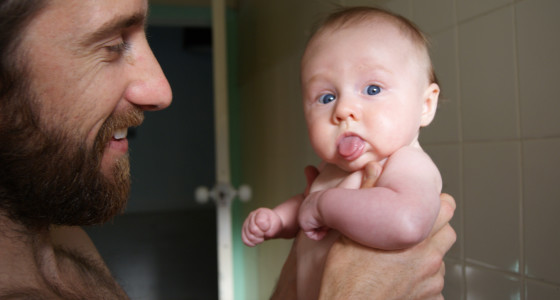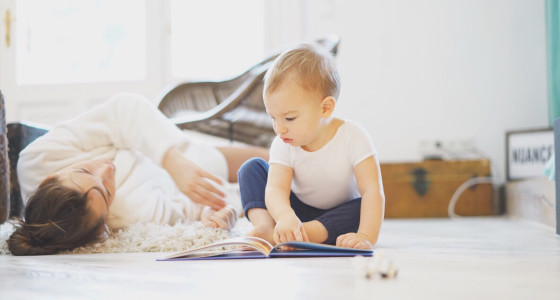
Having a child is one of life’s biggest commitments and most rewarding experiences. Although you’ll need to be prepared to invest time and money by the bucket load. If you’re considering extending your family, follow these six simple steps to organising your finances before the baby arrives.
1. Tidy up your finances
The first thing you can do when you’re expecting a baby is spring clean your finances. Make sure you’ve trimmed your spending where you can and you’re saving sensibly.
Time will be a luxury once the baby arrives, so go through your financial ‘to do’ list now, starting with opening an ISA if you don’t have one already. It’s also important to write a will, or to adjust your existing will to include your baby. Our financial planning guide will help you get everything in order.
2. Know what you’re entitled to
When a woman takes time off work to have a baby she’s usually entitled to statutory maternity leave and pay. Where their partner is having a baby, men may be eligible for paid paternity leave.
Pregnant women can also take paid time off work for antenatal appointments, plus they’re entitled to free NHS dental care and free prescriptions during pregnancy and for up to a year after the baby’s born.
First-time mothers who receive certain benefits can claim the Sure Start Maternity Grant, which is a one-off payment of £500 towards the costs of having a child.
Everyone can claim Child Benefit, although if you or your partner earn more than £50,000 after tax then some of it will be clawed back in the form of a tax charge. If you’re affected by the tax charge then you can choose not to claim Child Benefit, but you should still fill in the form so that you keep accruing National Insurance credits. These will come in handy in later life and will help ensure you can draw the full State Pension. Child Benefit forms should be completed before the baby is three months old.
You may also be eligible for Child Tax Credit (the amount you receive depends on your income), and Working Tax Credit if you’re on low pay. Check the government website for more details.
3. Calculate the costs
Babies are expensive! According to Money Helper, a baby can cost anything between £1,600 and £7,200 in their first year.
Initial costs for your newborn will include things like a car seat, a cot and a pram, but you can save a lot of money by getting some of the items second hand on eBay or Gumtree, or even for free from Freecycle. It’s also worth asking friends and family what baby gear they have stored in the attic and garage.
4. Create a new budget with baby in mind
Your household budget will need to stretch to take the day-to-day costs of your new arrival into account. Items such as nappies, wipes and formula milk will need to be added. Start looking at the cost of these things when you go shopping and, where possible, buy in bulk for better savings.
Remember too that your utility bills are likely to go up while you’re at home in the day looking after the baby, and that you’ll probably be using your washing machine much more frequently.
If your budget’s beginning to look tight, think about where you can save money elsewhere: could you switch supermarkets or change your utility providers?
Once you return to work, childcare will be another major expense. Putting your baby in a day nursery full time costs around £212 a week (or £284 in London) according to Money Helper. You should check if your employer offers any help with the costs, and if you’re eligible for help from the government.
5. Protect your pension

If you’re enrolled in a workplace pension scheme and your employer is making contributions, they must continue to make these contributions while you’re receiving Statutory Maternity Pay. You should double-check with your workplace that your pension contributions are still being paid while you’re off work.
In terms of the State Pension, the fact that you’ve claimed Child Benefit indicates to the government that you’re off work to care for your child, so you should continue to receive National Insurance credits. This is important because the number of credits you have informs the calculation of how much State Pension you’ll receive when you retire.
When you’re deciding whether to return to work after your parental leave has finished, remember to consider the impact on your pension. If you return to work straight away, you won’t have a gap in your pension contributions and your employer will carry on paying into your pot. If you return to work on reduced hours, you and your employer will probably be paying in less, which will mean your pot will grow more gradually. If you become self-employed or you decide to stay at home with your child, you’ll have to make your own pension arrangements, and you won’t enjoy the benefits of employer contributions.
One of the easiest ways to get on top of your pension is by using PensionBee. With PensionBee you can locate and transfer all your pensions in an online plan.
6. Set up a savings account for your child
You can set up a children’s savings account on behalf of your child, which they will be able to manage themselves once they’re older. It’s worth shopping around as some accounts have rates of up to 6%. Tell the bank not to automatically take tax off your child’s interest payments by completing an R85 form.
Alternatively, you could consider a Junior ISA. Like any other ISA, this protects the interest from the taxman, although most children won’t reach the taxable threshold anyway. If you choose a Junior ISA, it will become a standard ISA when your child turns 18, and they will automatically have access to the money.
Risk warning
As always with investments, your capital is at risk. The value of your investment can go down as well as up, and you may get back less than you invest. This information should not be regarded as financial advice.




